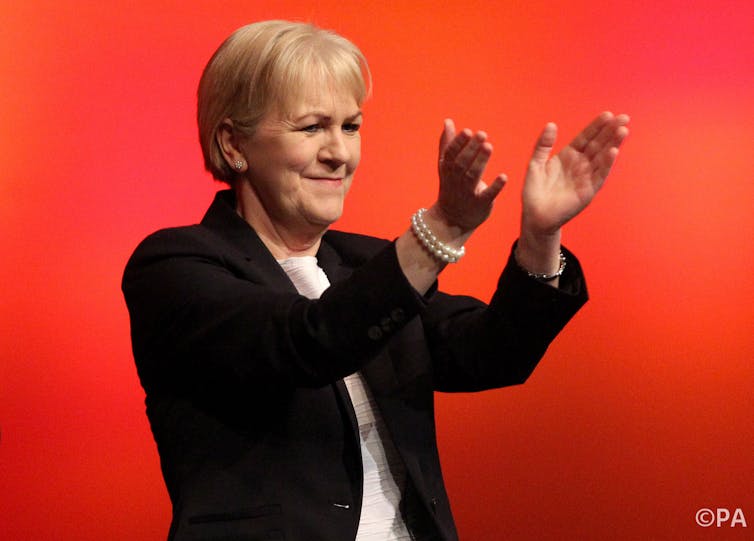Will the heady blend of Westminster love-bombing, ominous corporate warnings and a saltire flag over Downing Street be enough to persuade the Scots to come back into the fold? We have already looked at what will happen if they vote Yes. Now we we ask our panel what would will happen if they opt for No.
Karly Kehoe, senior lecturer in history, Glasgow Caledonian University
If Scotland votes No, there will definitely be another referendum. You can’t have half the population saying they want independence and expect them to disappear. The timing would depend on how Westminster responds to the result. Scotland must be given a genuine form of devo max. If it just brushes it aside and makes token gestures, the second referendum would come a lot sooner.
Next year’s general election will be crucial here. If it produces a coalition government between the Tories and UKIP, that would be devastating for Scotland. But even if Westminster does do a good job of reaching out, which I would optimistically say they would, I still think a second referendum is highly likely.
I suspect the aftermath won’t be as divisive as some people think. Scotland will heal itself. Most people I have spoken to have been very understanding and respectful of other people’s positions. There would be significant disappointment among Yes voters, of course, but they may well be more politicised as a result. The debate has been very empowering for young people. It might even produce the next political leader.
Should Salmond step down after a No victory? Of course he shouldn’t. I am not an SNP supporter, but he would have still managed to mobilise a Yes campaign that has done what nobody thought was possible. The person who should resign, even after a No vote, is Scottish Labour leader Johann Lamont. She has been completely ineffective.

I feel sorry for Alistair Darling. He’s been so unsuccessful. Sometimes I listen to him and think, do you even believe what you are saying? The problem with Darling and Gordon Brown is that you can’t have people fronting the No campaign who are intimately tied to the legacy of being voted out of office in the UK and losing badly to the SNP in Scotland. They needed to find young blood. If they limp over the line, they certainly shouldn’t feel victorious. There wouldn’t be much reason to celebrate. People needed to hear something new and they didn’t.
Neil Blain, Director of Media Research Institute, University of Stirling
It’s not all love from the south in the last couple of days. Simon Heffer is at it again in the Daily Mail (“300 years of subsidy” has become his catchphrase), telling the Scots to get lost. If the Mail is all too predictable, you could find Alex Thomson on Channel 4 News explaining the union of 1707: “Scotland was skint and England was flush.”
So we’ve been subsidy junkies since the start of the 18th century, and if the comment threads on the Mail and the Telegraph are correct, we’ll soon “come crawling back” after we vote Yes. The Guardian’s Michael White (only slightly) more subtly praises the first minister for success with his “grand illusion”.
Underlying Scotland’s brief moment in the sun is the harsher reality that these brief peaks of attention will disappear the moment a No vote has registered and Westminster and the London media can get back to business. The instant displacement of Salmond by Will and Kate showed the true yearnings of London news editors. Even thoughtful commentators like Will Hutton propose a federal Britain as the solution to Scottish needs. If ever there was a way of kicking the Scottish constitution into the long grass, that must be it.
Meanwhile, are the deathbed conversions of the three Westminster party leaders to devo-medium-strength is froth that the next UK election will have quickly blown off? No future Westminster government will be bound by fevered promises made in a panic in September 2014.
So if we vote No next week, it will likely be back to business – by about October, probably. The news cohorts will withdraw; the London media will note how our subsidy addiction overcame our nerve; Scotland as a news item will largely disappear. Current claims that “things will never be the same again” may be borne out too, though not in dreams of a federal Britain, but at best a take-it-or-leave-it Holyrood fix (devo-whatever, as long as it leaves real power at Westminster). This will come with financial penalties, probably also for Scotland’s role at Westminster, thus keeping the English regions quiet, enabling the nation to get on with important matters like finishing Crossrail, developing Thameslink, and pushing through that pesky third runway at Heathrow.
Trevor Salmon, Emeritus Professor of Politics and International Relations, University of Aberdeen
I think Salmond is the kind that bears grudges. My fear is that the losing speeches are gracious but nothing else will be. Are there going to be recriminations? You hear about businessmen getting phone calls warning they’ll get no more business from the Scottish government if they support Yes. If there’s any of that, you despair.
At what point in his own mind does Salmond say, “I have been leader of the SNP for so long, I have failed. It’s time to go.” Maybe he’s not the sort of person to do that. Or he may decide to wait to see what happens at the 2016 election. But he would have to face the fact that some people voted No because of him.
Darling should get the credit if he wins. But he would have a moral obligation to run for the Scottish parliament. That would be the best way to ensure that everything he promised the Scots comes true. Part of the No side’s problem is that the SNP have the best performers in Holyrood by far. If senior Labour people resigned from Westminster and stood for the Scottish parliament, they would be saying it is significant to them. Labour also has to reconnect with its grass roots by recognising that people are worried about things like welfare reform and the future of the NHS. Salmond has spoken to traditional Labour values. Labour must understand these count for people.
The UK would change. People in Yorkshire, Tyneside and Cornwall are likely to ask for some kind of devolution. They are going to want something similar to the Barnett formula the system for transferring funding to Scotland, Wales and Northern Ireland). And the country is going to have to answer the West Lothian question about Scottish MPs voting on English business. It’s not going to be a sudden revolution. But these thing are now on the agenda.
Salmond has said a referendum is once in a generation. That should mean you can’t go back in a year or two. But if No wins, there will be another referendum. I have been predicting ten years, but if the vote is very close, it could even be five years. A fuse has been lit.

To read other editions of Scotland Decides ‘14, click here.

